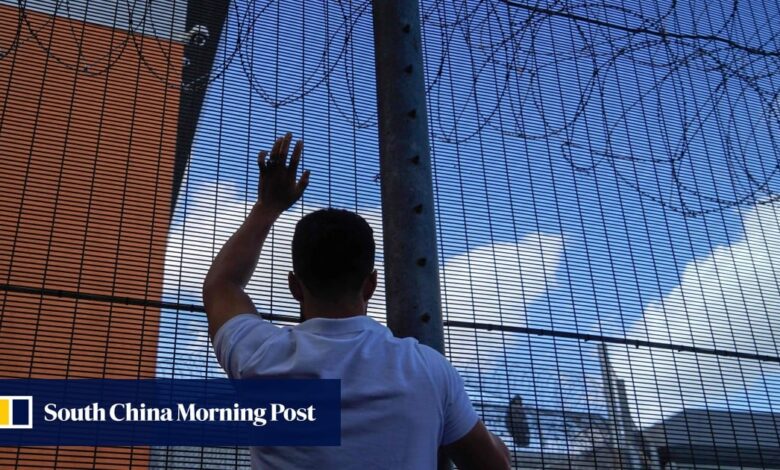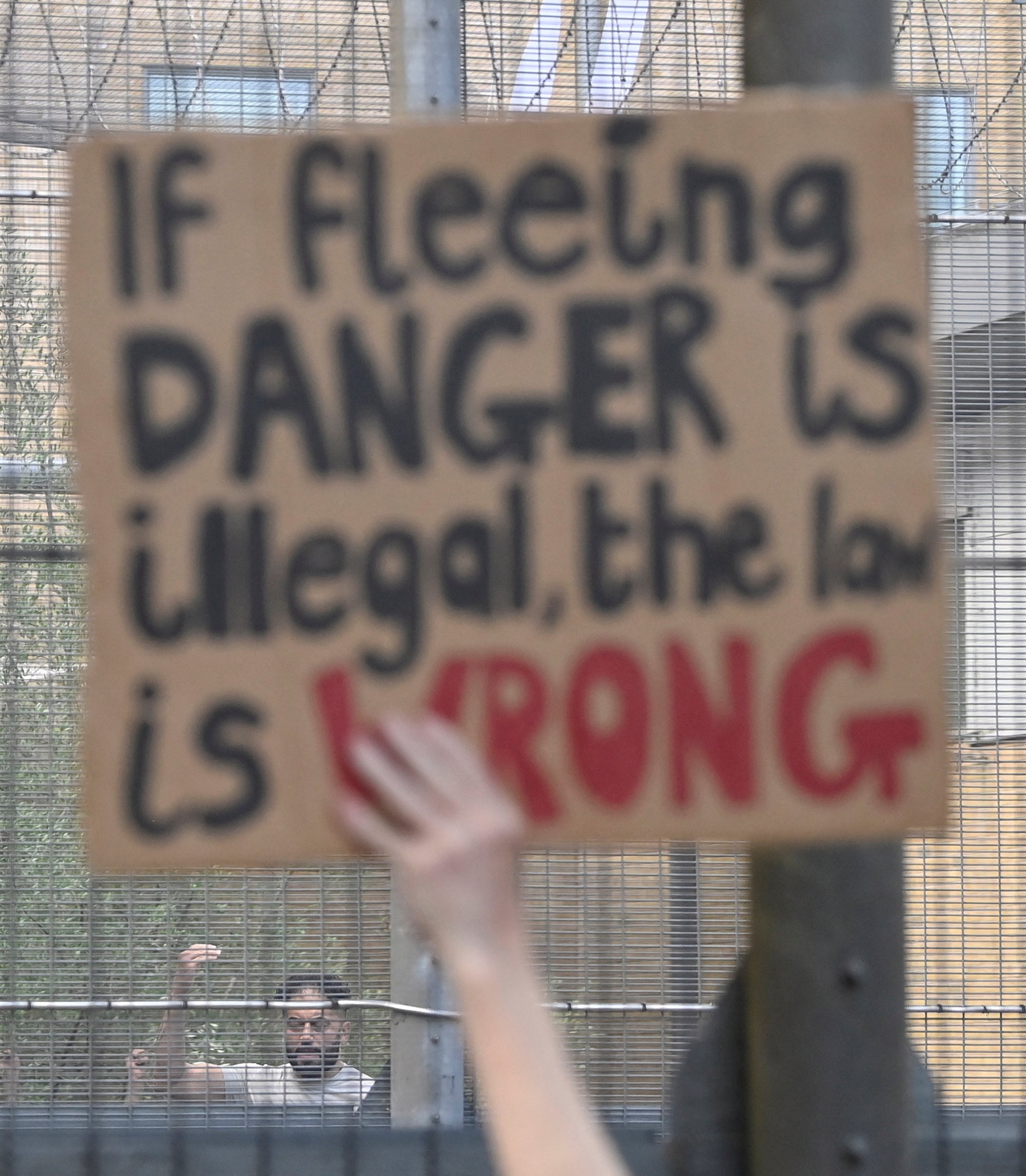UK inquiry: migrants awaiting deportation kept ‘in prison-like’ conditions

[ad_1]
A British inquiry reported that migrants awaiting deportation suffered physical and verbal abuse at a government-run detention centre, and recommended that no one be kept in such “prison-like” conditions for more than 28 days.
Inquiry chairwoman Kate Eves said migrants suffered “shocking treatment” at the Brook House Immigration Removal Centre near Gatwick Airport, south of London.
Eves said the facility had a “toxic” staff culture, and migrants faced racist and derogatory language, dehumanising comments and the inappropriate use of force.
“The most serious of these incidents involved the application of pressure to a detained man’s neck while he was in extreme distress,” her report said.

“If you are going to detain people in immigration removal centres, you have to do so humanely,” Eves said.
Noting that the government had ignored previous calls for reform, she urged officials to heed her recommendations, especially the “incredibly important” 28-day detention limit.
UK braces for new waves of Channel asylum seekers with barge and barracks plan
UK braces for new waves of Channel asylum seekers with barge and barracks plan
The inquiry was launched in 2019, two years after a BBC documentary broadcast undercover footage of alleged abuse towards detainees at Brook House. Staff employed by outsourcing company G4S ran Brook House at the time.
Home Secretary Suella Braverman, the government minister in charge of immigration, acknowledged there had been “failings in both oversight and governance to protect the welfare of detained individuals”.
She said the government would “carefully consider the findings” of the report.
A G4S spokesperson said the company was “appalled” by the conduct of some of its former employees in 2017 and apologised.
The G4S spokesperson said the company no longer runs Brook House, which is now run by Serco, or any other immigration removal centres.
Britain’s Conservative government has adopted an increasingly punitive approach to people who arrive in the UK by unauthorised means such as small boats across the English Channel.
It has passed a law calling for small-boat migrants to be detained and then deported permanently to their home nation or third countries. The only third country that has agreed to take them is Rwanda, and that plan is being challenged in the UK courts.
Enver Solomon, chief executive of the Refugee Council, said the inquiry had “shown clearly that the Home Office is not able to provide basic levels of care and humanity for vulnerable people in detention”.
Additional reporting by Reuters
[ad_2]
Source link





